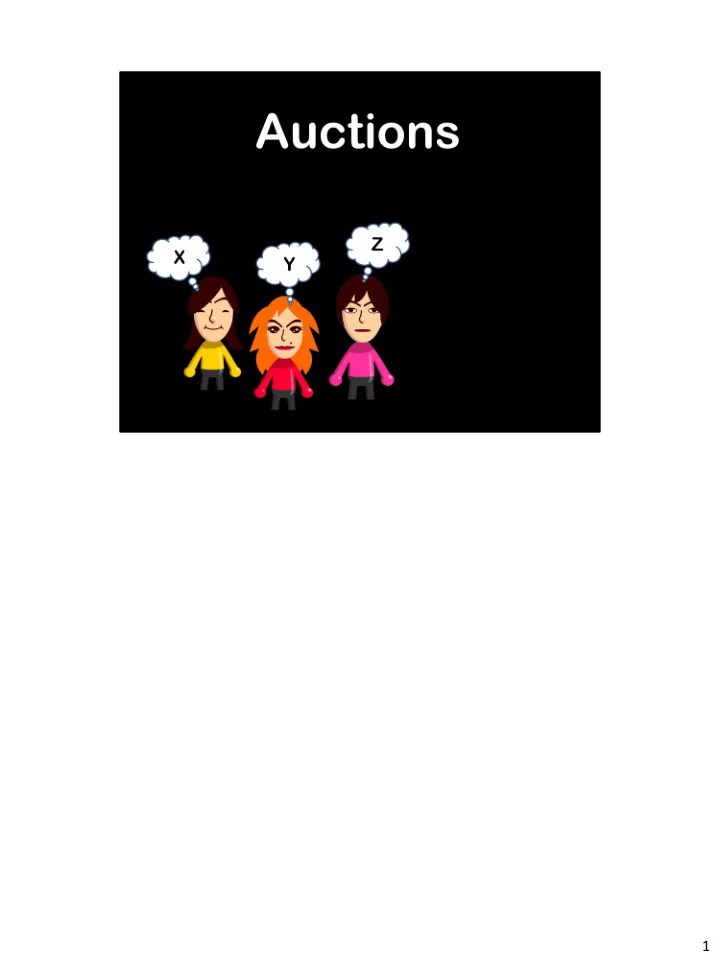

1
How much is 10 dollars worth (we should all know) Luis is auctioning off a 10 dollar bill. The winner pays his or her bid and gets the 10 dollar bill. The runner up pays his or her bid and gets nothing 2
How swoopo works. They make money as losers still have to pay for their bids.. This is called an all-pay auction, as everyone pays. The auctioneer makes bank, but all bidders but one get hosed. 3
English (Ascending): what you usually see in live auctions (everyone knows the current bid and can bid higher) Dutch (Descending): auctioneer starts at a really high amount and descends- the first person to agree buys. First price sealed bid: Send your bid, they pick the highest one. House buying is a First Price Sealed Bid. You make an offer for the house, and the seller gives it to the person offering the highest price. Second price sealed bid: Send your bid, they pick the highest one, but the winner pays the second highest bid. (more honesty inducing, as shown later in the slides) 4
Valuation is how much someone values an object (not necessarily how much they will bid, though) 5
In both cases if someone bids higher than you then you lose, and you don't know what everyone else will bid. 6
As long as the price is less than your validation, y ou’re still making a profit if you win. However, as long as other people are bidding you still have to bid to get it. 7
8
You only need to pay 1 more cent than the second highest bidder. 9
Reminder: Dominant strategy means there is no better strategy. 10
11
12
13
14
15
16
17
18
However, Overture first used a first-price auction, so people began to underbid 19
The search engine folks’ commodity is the ad impressions, so they would like to charge on cost-per-impression – as in, they want to get paid every time they show an ad. On the other hand, the ad-buyer wants to pay based on when someone buys their stuff because of an ad. Using “cost per click” is a compromise -- it’s also information available to both parties (search engine knows clicks, and the ad buyer can use backtracks on their page to make sure the search engine isn’t lying) This also makes it so that Google has a high incentive to serve relevant ads (so they get more clicks), and to some extent, for ad buyers to make sure that people won’t click on their ad and decide not to buy – that users are in the right “frame of mind”. 20
21
So there’s a second -price auction. Google charges based on what position you are on the page and how relevant you are, based on a “quality score” that nobody really knows except Google. There’s enough “hidden” things in Google’s ad system that it’s hard for people to game. Also, note that since Google only gets paid for the clicks, there’s some incentive for them to make sure there are relevant ads on search pages, instead of just selling their impression willy-nilly. 22
23
24
Google just tries to make it hard to game, by using quality score, etc. 25
26
27
Recommend
More recommend